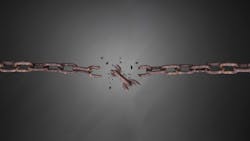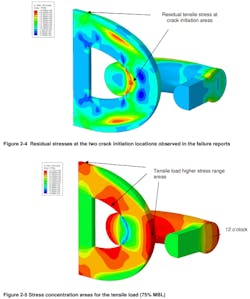DNV investigates mooring line failures
Offshore staff
OSLO, Norway — DNV has completed a study commissioned by Norway’s Petroleum Safety Authority (PSA) on the usability and suitability of high-strength mooring chains.
There have been various incidents offshore Norway of mooring line losses due to failure of high-strength components, occurring in routine operating conditions and during installation, with different levels of tension in the failed mooring lines.
Causes proposed to date relate to issues with material technology, installation, design and operation. However, there is little systematic research on the topic, with no best practice for avoiding loss of mooring lines caused by failure of high-strength components.
This year DNV has performed an independent review with evaluations based on 18 reported incidents, mostly on the Norwegian continental shelf, in which high-strength mooring components failed on mobile offshore drilling units.
The most common failure mechanism affecting high-strength chains appears to be hydrogen embrittlement., with the main factors for crack initiation and growth being susceptibility to hydrogen embrittlement in the material, handling of mooring chain, high tensile loading and local production of hydrogen due to the application of cathodic systems for corrosion protection.
According to the PSA, the report provides a solid foundation for establishing mitigation actions for reducing the number of failures in high-strength mooring components. It also proposes possible future investigations to allow better understanding of the contributing factors.
12.20.2022

